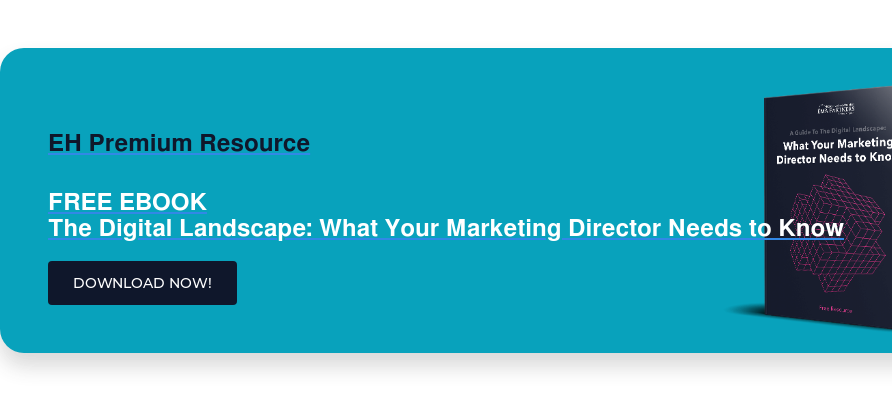Are you wanting to revitalise your business’s marketing? Do you want a fresh new direction for your marketing plans?
You should consider changing your business’s philosophy for marketing. By doing this, you may be able to turn your floundering marketing strategy into a successful one that’s bespoke to your business.
What Is Marketing Philosophy?
So what do we mean by philosophy in terms of marketing? It's how you perceive your marketing function based on your customer’s/client’s needs. This affects your marketing strategies, output, and goals. It’s what defines what you work towards and how you work towards it.
Essentially, it’s the method of balancing your business’s needs with the needs of your customers/clients through your marketing.
Marketing philosophy is often based around 5 main concepts;
- Concept of Production
- Concept of Product
- Concept of Sales
- Concept of Marketing
- Concept of Social Marketing
Let’s take a look at the specifics of these 5 centre concepts.
Concept of Production

The production concept centres on the importance of product output, availability, and affordability. Businesses who believe in this concept conduct their business around marketing their product as affordable. They decrease production costs and increase availability of the product. It’s best suited to businesses supplying mass produced products that are in demand.
Essentially, this concept involves capitalising on taking a mass produced, in-demand product, and marketing it at the most affordable price whilst optimising your own production costs.
It relies on the concept of economies of scale. Economies of scale refers to the proportionate saving in cost that results from increased production levels. The idea is that by producing more and more of your product, you’ll save more money in production.
For example, if you produce a specific machine part, there’s a cost of production per part. But there's also a base cost of the facility, staff, and other expenses. These are costs that remain more-or-less consistent regardless of how many parts are produced and sold. By selling more parts, you’re saving more on this cost by producing more profit (parts) from the same base cost.
However, this concept has drawbacks. Often application of this concept can lead to what’s called marketing myopia. This is essentially short-sightedness. Marketing myopia occurs when you have a limited market view and fail to plan sufficiently for the future, instead focusing on the immediate needs of your business.
Concept of Product
This concept is based on product quality rather than quantity. Businesses who subscribe to this philosophy believe in marketing the high-quality product as the selling point. It involves the belief that customers and clients are above all attracted to product quality over price, and that marketing the quality of your product is the key to success.
This concept is best suited to businesses with a premium product/service that’s higher quality and more desirable than competitor products/services. Large investment products/services benefit the most from this. This is because when making large purchases, customers generally will want the best quality available to avoid wasting money through a poor investment.
This is true to an extent, though for many customers price is still very much a factor in their decision-making process.
Though quality of product/service justifies price for many, there is a limit, and costs that are too excessive or too much higher than your competitors can turn customers away.
Concept of Sales
This concept of marketing focuses on the need to proactively sell your product/service to people. It assumes that your target audience aren’t going to invest in your offering without a push, for a variety of reasons. Businesses who adopt this concept focus more on aggressive sales and promotional techniques to entice customers, rather than letting interest develop organically.
This concept is best used for less well-known products/services. For example things which most people aren’t aware they want/need.

Concept of Marketing
This philosophy centres around the importance of positive marketing. More specifically, businesses who apply the concept of marketing focus their effort on customer satisfaction over all else.
‘The customer is always right’. At least in terms of their wants and needs. By centring your marketing around this philosophy, you commit to tailoring your product/service to the customer’s needs.
This is a very good philosophy for improving your business’s brand reputation and customer relationships, though it may not see as much profit as, say, aggressive sales approaches.
Concept of Social Marketing
The social marketing idea is becoming more and more popular recently. Like the marketing concept, this idea focuses on customer satisfaction, but goes further. It places importance on pleasing customers through broader societal and customer welfare. This means satisfying the customer not only through direct business practices, but also through providing services to society.
Many businesses choose to do this through charity involvement, environmental awareness campaigns, and providing wider benefits to the industry.
Why is This All Important?
Gaining an understanding of the applications of marketing philosophy is essential to successful marketing. Why? Because it helps you understand where you are and where you’re heading. It helps you structure your marketing plan for the future and create successful, innovative strategies. It helps you set realistic goals for your business based on the intricacies of your product/service, and the needs of your customers.
It also helps you attract top talent to your business. The best marketers understand these concepts well, and want to work in businesses where the philosophy is a good fit. This is essential if you’re conducting Marketing Director or Marketing Executive recruitment.
Identify Your Current Philosophy
So what’s your businesses philosophy? Which of these concepts does your business’s marketing match the most? Does it perfectly align with one? Or does it take elements from a few?
There’s no right answer here, and it’s common to hold a philosophy that doesn’t exactly fit just one of the 5 core concepts.
In fact, it can often be better to take a few different elements and work with them to best suit your business. But before you start changing your marketing practices, you need to have a good idea of your current philosophy.
Think about your business goals. What’s most important when marketing your business? What’s your selling point? Do you market your product based on price? Quality? Customer satisfaction? Most importantly, is your current model working or not? These are the elements you should determine before advancing.
Analyse Your Business Culture
Take a look at your current business culture to help determine what type of philosophy will work best for you. Analyse the product or service you’re selling. What are its benefits for the customer? You should market your business to capitalise on these benefits.

Identify Your Ideal Philosophy
Think about the pros and cons of each potential marketing concept for your business.
The chances are there might not be a concept that’s a perfect match. However, you should be able to find one that mostly fits your business, and adjust it using elements from other marketing concepts.
Weigh up the pros and cons of each concept, and determine which is the best fit for your current model. Take into account your industry, your audience, and the product/service you’re selling.
Consider Taking Elements from Each
The key to marketing success doesn’t always mean choosing one philosophy and sticking to it. Every business is different, so the chances are you’re going to end up taking elements from each concept. And that’s fine! Your philosophy should be bespoke to your business. It should reflect your standards, your achievements, and your goals.
This is why you should invest the time into fine-tuning your philosophy. Trying to stick too rigidly to one concept can limit your marketing output. You should be taking advantage of your market and your businesses strengths.
The Changeover Process
Now if you’ve made the decision to change up your marketing, how do you go about doing this? It’s not as simple as just making the mental decision. Your business should be aware of how you view marketing as a function and its purpose in bringing in clients and securing sales.
Think about how you’re going to conduct this change business-wide. Everyone in the business should be aware of the change in marketing goals so that they can keep them in mind when conducting operations.
Consider when you’re going to implement this change and over what time frame. Changing philosophy begins with a change in mindset and goals. But it should be carried out physically as well as mentally.
This change could mean adjustments to the marketing budget, additions to the team, and changes to the way other departments such as the sales team work.
For example, if you’re switching from the sales concept to the marketing concept, this will have a big effect on your sales team. It might mean investing less money in sales and more in marketing, leading to potential recruitment and layoffs. It might mean retraining your sales team to sell in a less aggressive manner.
Making this change too suddenly can cause unrest and lead to problems. Consider a gradual implementation with a clear goal. You should outline to workers “We want to change the marketing function from X to Y. This is to achieve Z goal. This is how it will affect each of you”.
Use Inbound Marketing to Win Over Clients

The common link between each of these marketing philosophies is the use of inbound marketing.
No matter what marketing concept you adopt, inbound marketing always has a place in winning over clients.
So how can you do this?
You should solid inbound marketing strategy. This needs to be reliable and consistent. Inbound marketing is based on attracting business to you organically through producing content and brand awareness rather than direct approaches and hard-selling.
One of the most popular inbound marketing strategies is the use of content marketing to attract business. This method uses quality, original content and SEO to boost online presence.
The use of social media for inbound marketing is also very popular. However, there’s been some recent doubt over the effectiveness of social media in marketing.
Hire The Right People To Implement Your marketing
Above all, you need to make sure you’ve got the right marketing staff to carry out this change in philosophy. Make sure you know what to look for in your Marketing candidate’s CVs to get a head-start in your recruitment process. Hiring the perfect senior marketer to carry out this change isn't always easy, but it’s always worth it.
Choose the Marketing Philosophy That’s Right for You
In the end it’s simply important that you make sure to pick the right philosophy for your business and your goals both long and short-term. By finding the right concept to work with, you can optimise your marketing output and bring in new business.


